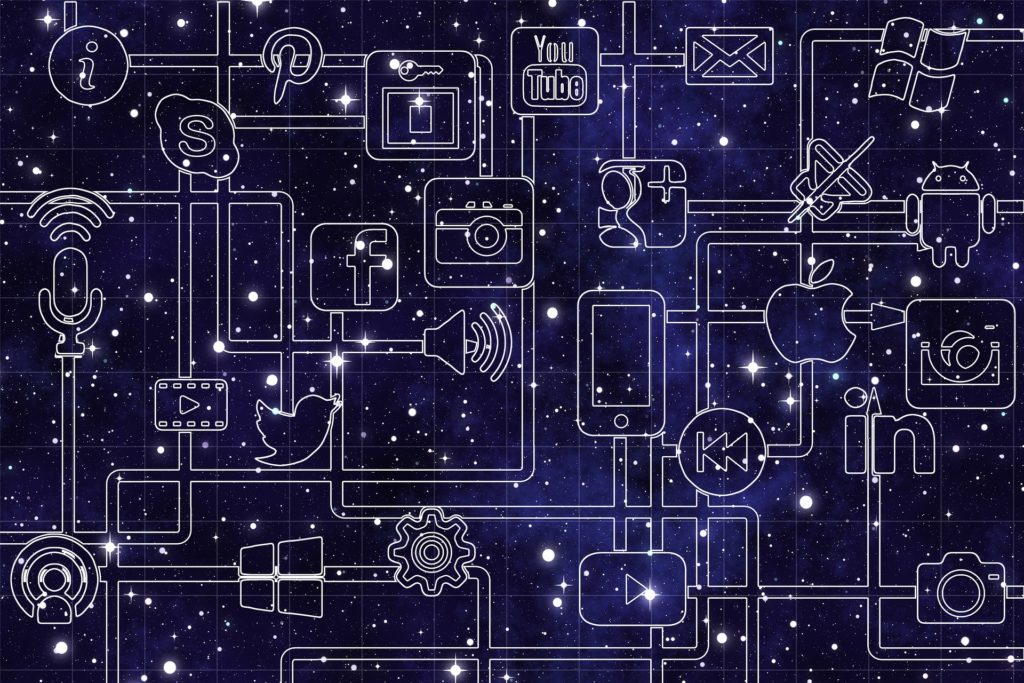Yours and mine
Last week, several years behind the curve as usual, I finished reading Dave Eggers’s The Circle. For those of you who have not had the pleasure, I would certainly recommend it – and indeed, in the few years since the book was published (in 2013), the reach of social media, automated and linked technology in the home, and data sharing in general has only increased. I’m not going to spoil the story for you, because that would be grossly unfair. But it hinges on the willingness of people to share all aspects of their lives with others as part of a global social network. Willingness turns to enthusiasm; enthusiasm begins to manifest as a call for mandatory participation in sharing everything; and people become irrationally upset and hurt at the suggestion that someone might actually choose to do something and not film, photograph, post and share everything about that activity.
Now, I’m a pretty private sort of person. If you think that’s an odd thing for a blogger, Facebook and Twitter participant, user of Dropbox and various other cloud-based accounts to say, you’d certainly have a point. But for the most part, I’m quite careful about what I choose to share digitally, and also conversationally. I’m also an introvert, big time. I need time alone. I often reach my tolerance limit of being around other humans at large social events and have to go away. I read a lot. I like the quiet. I’m more than happy to entertain myself for hours at a stretch without feeling lonely. So the idea of sharing every little thing, all the time, brings me out in a cold sweat.

But here’s the thing. In several conversations with friends about The Circle, in which we all agreed that the ‘transparent’ life lived in full view of everyone made us feel distinctly queasy, it proved remarkable difficult to come up with concrete reasons as to why this should be the case. We all agreed that a lot of it had to do with upbringing, what we were used to, and what we considered personally to be acceptable levels of privacy. I don’t need you all to know what I had for lunch, because firstly, it’s none of your business, and secondly, it’s just not very interesting. But those reasons are both subjective of course, and you could argue (though I hope you won’t) that I couldn’t possibly know whether or not my lunch choices were all that interesting to others, and if they could be, then perhaps there was a legitimate reason to share them. Or you could say that since it’s such an impersonal aspect of my life, what’s the harm in sharing it? Am I ashamed of my lunch choices? Could it upset people to know what I ate? If not, what’s the problem?
Inevitably, security protocols also came up in my conversations with friends. We are now expected to reveal the contents of our bags to people before we’re allowed to get into a theatre, a gallery, the British Library. We can’t post things in jiffy bags without explaining to the Post Office staff what items we are actually posting therein. We are filmed by CCTV, our internet use is monitored by government as well as by big business, and in the name of accessing as many free internet connections as possible whilst being ‘safe’ about it, we constantly create new accounts just for the sake of getting online ‘securely’, in most cases without bothering to check who is running the account or what the Ts & Cs actually say.
And then there’s the Google and Amazon home assistants, sitting in the corner like a sort of space-age lily vase, and answering queries for us as we shout at them. Which means that they are ‘listening’ all the time. But as one friend remarked, when I said that I wouldn’t have one of those things in my house if they paid me, ‘Our lives are not so interesting… there’s nothing of crucial importance it’s going to hear… so why does it matter? What can they usefully do with the information that the dog’s misbehaved again, and we need to add milk to the shopping list?’
What makes The Circle so uncanny is the need for all to join in all the time, so that no action or interaction can be left undocumented. There is no choice in the matter, and thus no option to have privacy. There is therefore also no value placed on the benefit of time alone, or quiet time in which no interaction is required (even sitting quietly with others), or time away from online connection. Even if technology was fully mobile, lightweight, carried no health problems like blue light affecting sleep, this strikes me as a scary prospect. If all you see, do, experience must be immediately logged and shared, you are destroying the chance to think slowly, absorb and process and defer judgement, remember what it means to exist as an individual without the need to please or react instantly to others. I would suggest that mental health, physical health, creativity and intellectual development rely upon privacy. But then, you don’t even know what I had for lunch. So maybe I’m not to be trusted after all.

